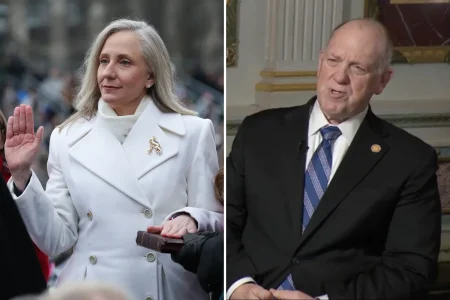Dutch Political Landscape Transformed: Wilders’ Coalition Collapse and the Electoral Aftermath
The Shock Wave That Fractured the Netherlands’ Government
The political landscape of the Netherlands experienced a seismic shift earlier this year when Geert Wilders, the controversial far-right figurehead, and his Party for Freedom (PVV) orchestrated what many observers have characterized as an intentional implosion of the country’s governing coalition. The development sent ripples through Dutch society and across European political circles, leaving analysts scrambling to understand the strategic calculus behind such a dramatic move. Wilders, known for his anti-Islamic rhetoric and skepticism toward European integration, had seemingly achieved what many thought impossible when his party formed part of the ruling coalition following surprising electoral gains. However, the partnership proved short-lived, collapsing amid tensions over immigration policy, economic priorities, and fundamental differences in governing philosophy. “This wasn’t simply a disagreement over policy details,” explained Dr. Marieke van der Wal, political scientist at Leiden University. “What we witnessed was the inevitable result of forcing fundamentally opposed political visions to coexist in governance.” The fracturing occurred during a particularly volatile period in Dutch politics, with the country already grappling with housing shortages, agricultural protests, and increasing polarization among the electorate. The timing of the coalition’s dissolution raised questions about whether Wilders was responding to immediate political pressures or executing a calculated long-term strategy designed to reposition his party before the next electoral contest.
The Historical Context and Wilders’ Political Gambit
To fully appreciate the significance of the coalition’s collapse, one must understand the Netherlands’ complex political ecosystem and Wilders’ decades-long journey from political outsider to kingmaker. Since founding the PVV in 2006, Wilders has gradually expanded his influence by capitalizing on anti-establishment sentiment and concerns about immigration and national identity. The Netherlands, traditionally known for its progressive policies and consensus-building approach to governance, has experienced a gradual rightward shift in recent years, mirroring similar trends across Europe. Wilders’ decision to fracture the coalition represents a calculated risk in this evolving political environment. “Throughout Dutch political history, we’ve seen parties occasionally sacrifice short-term governmental power to pursue longer-term electoral advantages,” noted Dr. Hendrik Vos, professor of European politics at Ghent University. “Wilders appears to be betting that the freedom of opposition will prove more valuable than the constraints of governance.” The move echoes historical precedents where Dutch political parties deliberately stepped away from coalitions to distinguish themselves from compromise positions they found increasingly untenable. What makes Wilders’ strategy particularly noteworthy is its timing—occurring during a period of multiple crises requiring stable leadership. The coalition’s dissolution has forced a reconfiguration of political alliances and created a power vacuum that various parties are now scrambling to fill, with traditional centrist forces attempting to reassert themselves against populist challengers on both the left and right of the political spectrum.
Public Reaction and Shifting Voter Sentiments
The Dutch electorate’s response to the coalition breakdown has been complex and multifaceted, reflecting the country’s increasingly fragmented political landscape. Initial polling conducted by Ipsos showed a surprising reaction: rather than punishing Wilders for governmental instability, approximately 28% of voters appeared to approve of his decision to withdraw from the coalition. “Many of Wilders’ core supporters never wanted him to compromise on key issues in the first place,” explained Cathrine de Vries, Professor of Political Science at Vrije Universiteit Amsterdam. “For them, this represents a return to authentic opposition rather than a failure of governance.” However, the picture becomes more nuanced when examining responses across different demographic groups. Urban professionals and younger voters have expressed frustration with the resulting political uncertainty, while Wilders has maintained stronger support among rural communities and older demographics concerned about immigration and cultural change. Media coverage has amplified these divisions, with various outlets framing the coalition collapse according to their editorial perspectives. The influential newspaper NRC Handelsblad described it as “a predictable failure of an unnatural alliance,” while more conservative outlets presented it as “a principled stand against compromising Dutch values.” Social media analysis reveals an increasingly polarized conversation, with the hashtags #WildersVerraad (Wilders’ betrayal) and #WildersMoedigeBesluit (Wilders’ courageous decision) trending simultaneously across different online communities, highlighting the dramatically different interpretations of the same political events.
Electoral Implications and Parliamentary Arithmetic
As the Netherlands prepares for new elections following the coalition collapse, the central question remains whether Wilders’ political gambit will translate into parliamentary gains or losses for his party. Current polling presents a complicated picture that defies simple interpretation. The most recent survey by Kantar Public suggests that the PVV could potentially lose 3-5 seats in the 150-member House of Representatives, dropping from their previous high-water mark. However, political analysts caution against premature conclusions. “Dutch electoral politics is notoriously fluid, with significant voter movement occurring in the final weeks before an election,” observed Thomas van Gogh, director of the Center for Political Analysis in Utrecht. “What appears to be a potential seat loss now could transform into stability or even gains depending on campaign effectiveness and external events.” The electoral calculus is further complicated by the emergence of splinter parties and shifting alliances within the fragmented Dutch political system. Traditional center-right parties like the VVD (People’s Party for Freedom and Democracy) are attempting to recapture voters who previously shifted to Wilders, while progressive parties are working to mobilize their base through warnings about the risks of right-wing populism. Perhaps most significantly, analysts point to the approximately 15% of Dutch voters who remain undecided—a bloc large enough to dramatically reshape electoral outcomes. The parliamentary arithmetic ultimately hinges on whether Wilders can maintain his core support while simultaneously expanding his appeal beyond his traditional base, a challenging proposition given his polarizing reputation and the strategic positioning of competing parties seeking to exploit perceived weaknesses in his recent political maneuvering.
International Dimensions and European Implications
The collapse of the Dutch coalition carries significance far beyond the country’s borders, particularly within the context of European politics and transatlantic relations. The Netherlands, a founding member of the European Union and traditionally a stalwart supporter of European integration, has seen its politics increasingly influenced by Eurosceptic sentiment championed by Wilders and similar movements. European leaders in Brussels have been monitoring developments closely, concerned about the potential ripple effects on EU policy coordination and decision-making processes. “What happens in Dutch politics rarely stays confined to the Netherlands,” remarked Jean-Claude Piris, former director-general of the EU Council’s Legal Service. “As one of the original six founding members, Dutch political shifts inevitably influence the broader European political discourse.” International investors and financial markets have also registered concern about potential policy uncertainty, with the Amsterdam AEX index experiencing modest volatility following the coalition’s collapse. The United States, historically a close ally of the Netherlands, has maintained diplomatic neutrality while quietly expressing concern about the potential strengthening of anti-NATO sentiment should more extreme right-wing factions gain influence. Perhaps most significantly, political strategists across Europe are studying the Dutch situation as a potential harbinger for similar developments elsewhere. Right-wing parties in France, Italy, and Germany are closely analyzing Wilders’ approach, considering whether similar strategic withdrawals from government participation might serve their long-term political interests better than compromise-laden coalition politics.
Future Scenarios and the Transformation of Dutch Politics
Looking ahead, the Netherlands faces a period of political realignment that could fundamentally reshape its governance landscape for years to come. Three distinct scenarios have emerged as possibilities following the upcoming elections. The first envisions a chastened Wilders returning to the opposition benches with reduced parliamentary representation, allowing more centrist forces to establish a stable governing coalition. The second foresees the PVV maintaining or even expanding its influence, potentially forcing mainstream parties to accommodate more of Wilders’ policy priorities despite his withdrawal from the previous coalition. The third and perhaps most consequential possibility is a further fragmentation of the Dutch political landscape, with no clear governing majority emerging and extended periods of negotiation becoming necessary. “What we’re witnessing may be more than a temporary disruption,” suggested Dr. Anna Jansen, political historian at the University of Amsterdam. “It could represent the early stages of a fundamental realignment in Dutch politics, where traditional left-right distinctions become less relevant than divisions between globalist and nationalist visions of society.” Beyond the immediate electoral consequences, deeper questions arise about the Netherlands’ political culture itself. The country’s long tradition of consensus-building and pragmatic compromise—sometimes called the “polder model”—faces an existential challenge from the confrontational style embodied by Wilders and similar populist figures. As traditional political parties struggle to address complex issues like immigration, climate change, and economic inequality, the space for radical alternatives may continue to expand. For Dutch citizens watching this transformation unfold, the collapse of the coalition represents not just a momentary political crisis but potentially a turning point in their nation’s democratic journey—one whose full implications may only become clear in the years and elections to come.










